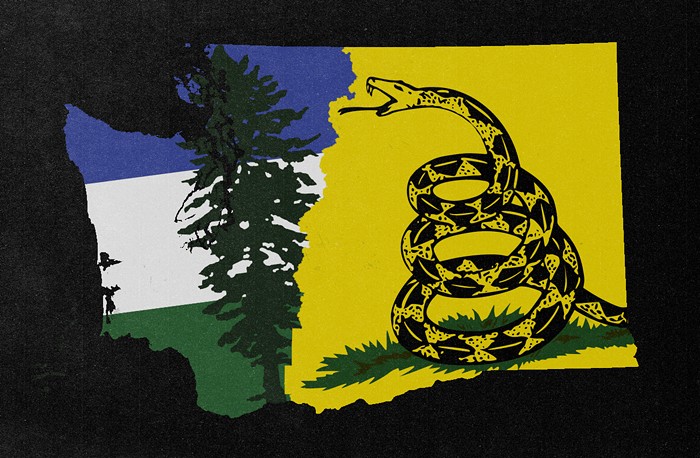
Yesterday, after Facebook and Google paid more than $450,000 to settle campaign finance lawsuits brought by Washington State attorney general Bob Ferguson, the companies received a clear warning.
If Facebook or Google violate this state's political ad disclosure laws in the future, Ferguson told The Stranger, "they’re going to hear from us again.”
Today, Facebook announced it's "pausing" the sale of state and local election ads in Washington "by the end of December."
The action brings it in line with Google, which halted its political ad sales in Washington State this summer, shortly after Ferguson filed suit against that company.
At the time, Google said it simply wasn't able to comply with state transparency regulations. "Which, frankly, I noticed and appreciated," Ferguson said.
Google's continuing ban on Washington State political ads raised the question of what Facebook would now do going forward, since Ferguson made clear yesterday that Facebook's major effort at bringing daylight to the murky realm of online campaign ads, a Political Ad Archive launched earlier this year, falls well short of what Washington law requires.
Beth Gautier, a spokesperson for Facebook, cast the upcoming halt in Washington political ad sales as being directly connected to a unanimous November 29 vote by the Washington State Public Disclosure Commission. In that vote, the commission ignored the pleadings of lobbyists from Facebook and Google, affirmed this state's strong political ad transparency regime, and clarified certain requirements.
"As we continue to address the Public Disclosure Commission's new requirements going into effect in the new year, we're pausing state and local electoral ads in Washington State by the end of December," Gautier said in an e-mailed statement.
Long-standing rules
But the requirement that companies like Facebook and Google disclose significant data related to political ad sales is not new.
It traces to a law that was passed by an overwhelming majority of Washington State voters in 1972, a law that applies to newspapers, radio stations, and television stations that sell political ads, as well as tech giants.
Back in December of 2017, the Public Disclosure Commission stated clearly that it believed this law "would apply to Facebook, Google, and other forms of social media and online advertising."
On May 9, 2018, the commission voted unanimously for an "emergency rule" affirming this belief.
It was shortly after that "emergency rule" took effect on June 7 that Google halted its local ad sales.
Ferguson had sued both Google and Facebook three days earlier, alleging they'd spent years collecting millions of dollars in revenue from local political ads while failing to follow this state's 46-year-old disclosure laws.
But for six months, as it fought Ferguson's lawsuit in federal and state court, Facebook kept on selling political ads aimed at local elections in Washington.
It claimed its Political Ad Archive provided sufficient disclosure even though Ferguson, in a recent court filing, made clear that it does not.
That filing from Ferguson, and his lawsuits against Facebook and Google, arose out of Stranger reporting that demonstrated the companies were not in compliance with state law.
More disclosure required
To get into compliance, Facebook and Google will now need to begin disclosing basic things, many of which they've long been required by state law to reveal, and some of which are newly clarified in the "final rule" on political ad transparency that was adopted by the PDC during that unanimous November 29 vote.
That "final rule" takes effect on January 1.
It says that companies such as Facebook and Google must disclose, to anyone who asks, information that clearly establishes a local political ad's origin, price, and reach.
That includes, among other things, the name and address of the ad's purchaser ("So that the public can know who paid for the advertising"); the ad's total cost (not an estimate or range, which is what Facebook's Political Ad Archive currently offers); the total number of impressions the ad received (again, not an estimate or range); and, as the PDC's final rule puts it, "a description of the demographic information (e.g., age, gender, race, location, etc.) of the audiences targeted and reached, to the extent such information is collected by the commercial advertiser as part of its regular course of business."
Gautier, the Facebook spokesperson, said in the e-mailed statement that "we're committed to helping protect elections on Facebook and have built tools to authorize advertisers and give people more information about the political ads they see."
But today's announcement appears to be an acknowledgment of what Ferguson said yesterday.
When asked by The Stranger whether Facebook's Political Ad Archive complies with current state regulations—never mind the "final rule" that takes effect January 1—the attorney general answered simply: "No."















